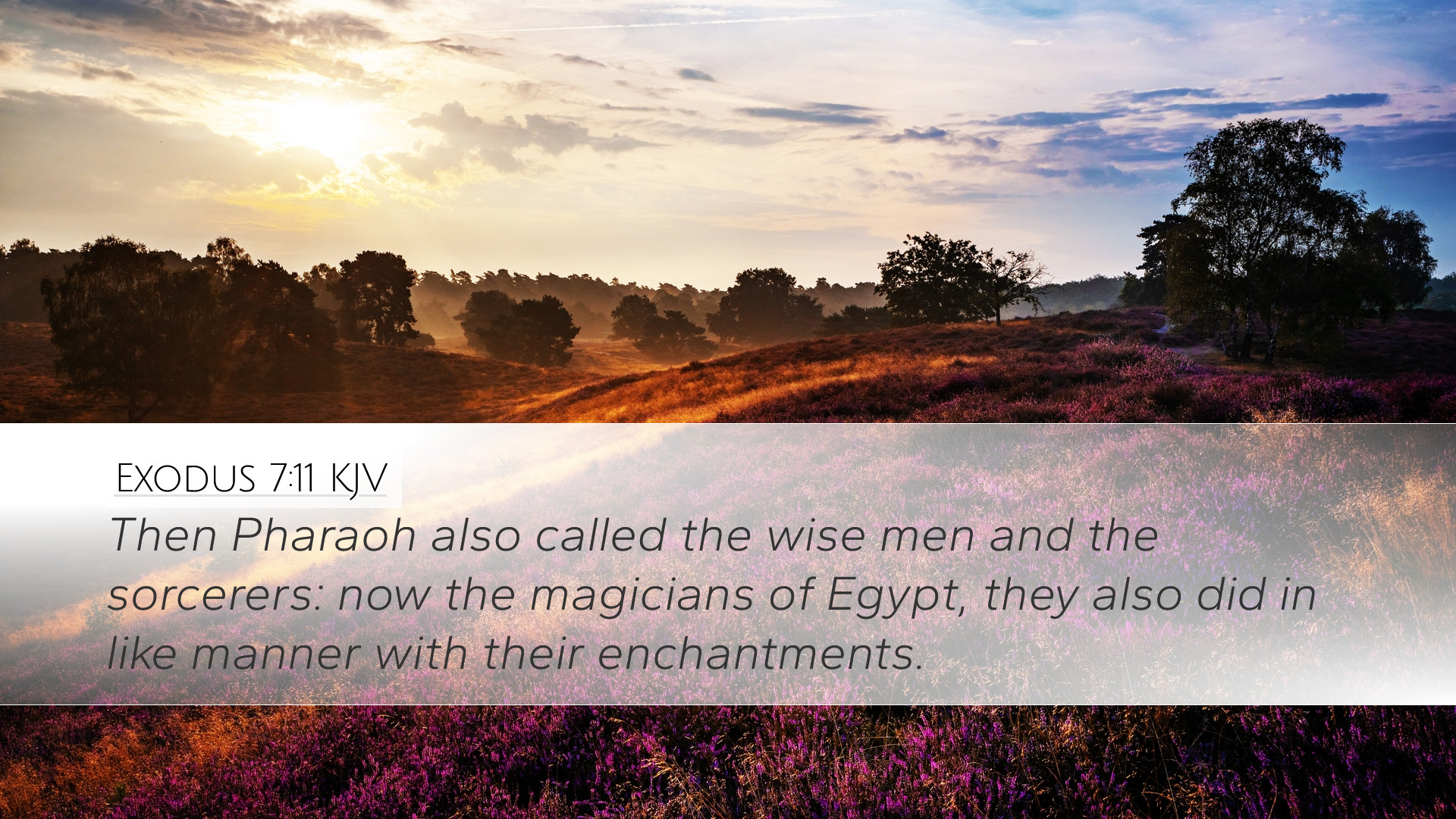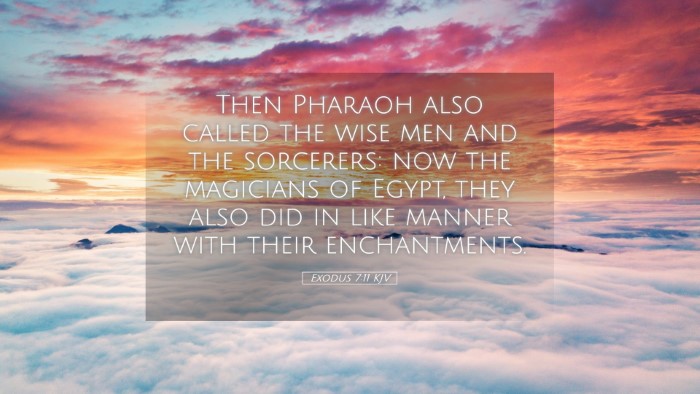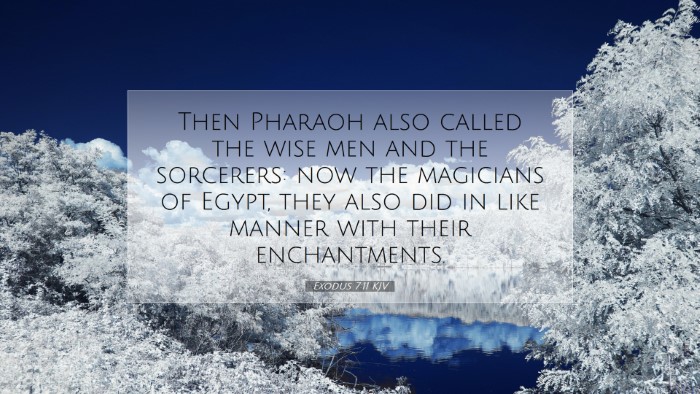Commentary on Exodus 7:11
Exodus 7:11 states: "Then the magicians of Egypt did the same by their enchantments, and brought up frogs upon the land of Egypt."
Introduction
This verse occurs within the context of the first plague upon Egypt, where God commands Moses to confront Pharaoh and warn him of the impending judgment due to his refusal to let Israel go. This commentary draws insights from notable public domain sources such as Matthew Henry, Albert Barnes, and Adam Clarke, providing depth to the understanding of this pivotal moment in the narrative of Exodus.
Historical Context
The setting of Exodus 7:11 is critical to understanding the spiritual battle between God and the gods of Egypt. The magicians’ ability to replicate the plague signifies not only their craft but also the challenge they present to the power of the one true God. Here, Pharaoh's heart is hardened, and he is influenced by the magicians' signs, leading to the deeper implications of disbelief and idolatry.
Analysis of the Text
Matthew Henry notes that the magicians acted by their enchantments. This indicates that their powers were derived from supernatural sources, perhaps through demonic assistance, allowing them to mimic some workings of God. Yet, Henry comments that despite their imitation, they could not stop the plague or diminish the effects, which establishes God's superior power.
Albert Barnes points out that the magicians were likely performing sleight of hand or using trickery rather than true magical powers. Their attempts to mimic the miracle only served to harden Pharaoh's resolve, showcasing his stubbornness against God's will. This illustrates a key theme: the deceptive nature of idolatry and reliance on false gods.
Adam Clarke emphasizes the significance of the frogs in this plague. Frogs were abundant in Egypt and were associated with the goddess Heket, a fertility deity. Therefore, the magicians' replication was not just a mimicry of God's power; it was also an affront to the Egyptian religious system, highlighting the impotence of their gods in the face of the Lord's commands.
Theological Implications
- Idolatry’s Limitations: This verse illustrates how human attempts at divination and magic ultimately fall short of divine authority. While the magicians could mimic, they could not reverse or mitigate God’s judgment.
- God’s Sovereignty: The plagues, including the multiplication of frogs, underscore God’s power over creation, emphasizing His ability to control nature and impose His will upon nations.
- Spiritual Blindness: Pharaoh's response to the magicians portrays a critical aspect of spiritual blindness. Despite witnessing the miraculous signs of God, he leans on false signs, which ultimately leads to his downfall.
Challenges for Today’s Believers
For pastors and theologians today, the story of Exodus 7:11 serves as a reminder of the challenges posed by spiritual deception and the importance of recognizing God's sovereignty. The temptation to rely on worldly wisdom or false teachings can lead believers away from God's truth. The confrontation between Moses and Pharaoh, along with the magicians' roles, exemplifies the need for discernment in the face of competing ideologies.
Moreover, students of the Bible are encouraged to delve deeper into the understanding of God’s acts throughout history—recognizing that every challenge brings an opportunity for divine revelation and strengthening of faith. This dynamic not only applies to historical or corporate contexts but also to personal spiritual journeys.
Conclusion
In conclusion, Exodus 7:11 encapsulates a significant encounter between divine authority and human hubris. The magicians of Egypt highlight how humanity often seeks control through means that ultimately prove futile against God’s purposes. The insights drawn from Matthew Henry, Albert Barnes, and Adam Clarke enrich our understanding of this text, allowing us to see the broader implications for faith and practice today. As believers, the message encourages us to discern the true source of power and to submit to God’s will, acknowledging His supremacy over all of creation.


